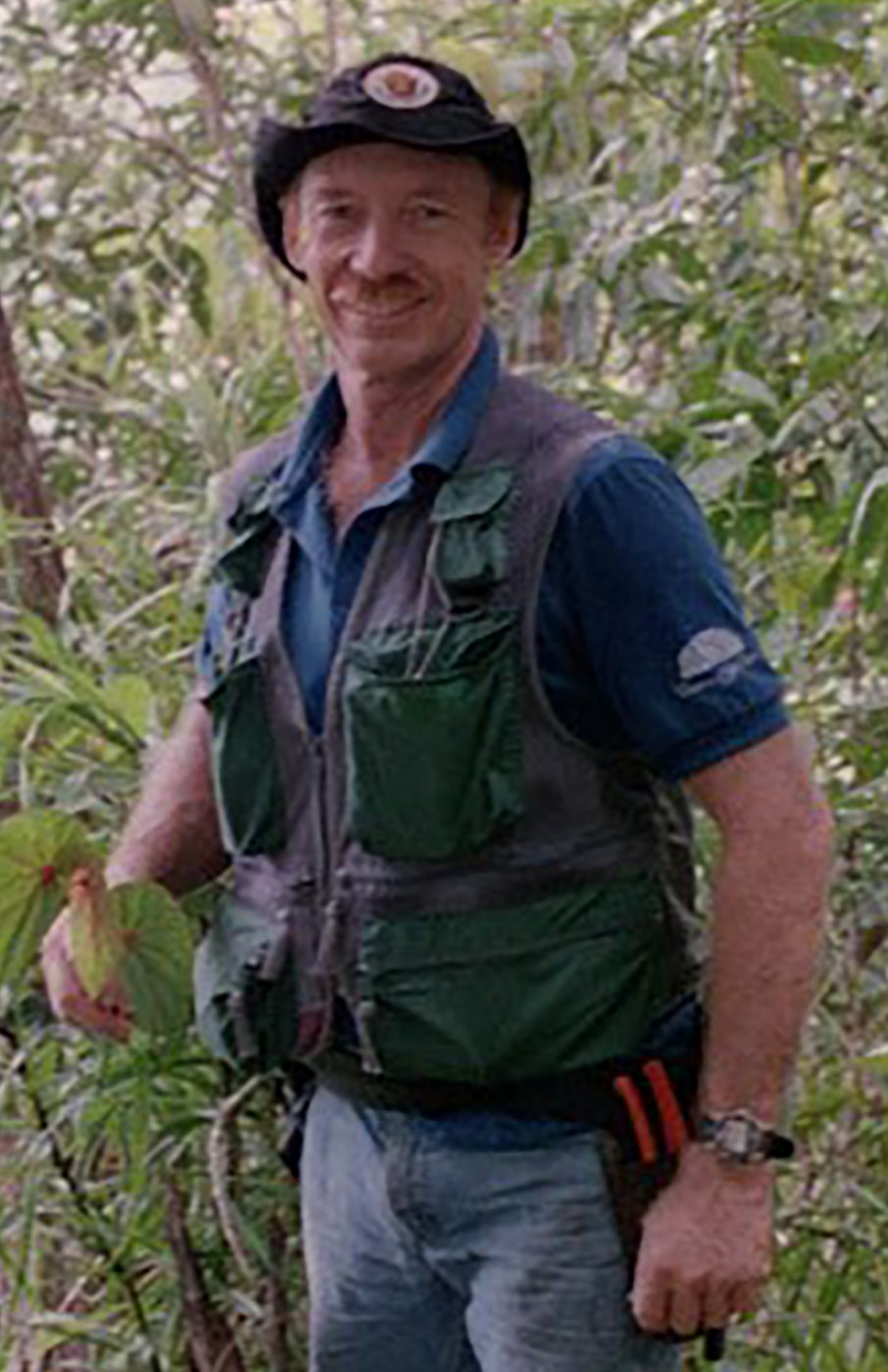B.S. Forest Technology 1967

John D. Mood, Jr.
John D. Mood, Jr. earned a B.S. degree in Forestry Technology in 1967. He completed an M.A. in Anthropology at the University of Guam in 1976.
His interest in trees, plants, and all things agricultural began on his grandfather’s farm where he grew up in Bucks County, Pennsylvania. The intensive interest in tropical plants came about after moving to Florida for his high school years. As an undergraduate, he assisted his advisor, Dr. Henry Gerhold, with forest genetics, working in the field and nursery to pay for his tuition. During two of the summer breaks, John worked for the USDA Forest Service in soils research both in the field and laboratory. In the last year as an undergraduate, financial support came via his laboratory work for the Pennsylvania Department of Land and Mines, doing soil chemical and physical analyses.
Although interested in serving in the Peace Corps in Ecuador’s Heifer Project, he instead joined the U.S. Air Force (USAF) and graduated from pilot training in September 1968. He was assigned to fly Caribous (C-7A) at Cam Rahn Bay, Republic of Vietnam (RVN), March 1969 to March 1970. During this intense period of tactical airlift, he was awarded the Distinguished Flying Cross for his heroism under fire during the siege of Ben Het, RVN. For the next 20 years he worked in many aviation positions throughout Asia and the Pacific theatres, retiring in 1988 after 21 years of service.
During his USAF years, living throughout Southeast Asia and the Pacific, his spare time was spent actively assisting local forestry, agricultural, and university botany departments in Guam, Philippines, P. Malaysia, Indonesia, India, and foremost in Sabah, Sarawak, and Thailand. His volunteer contributions included hands-on instruction in grafting and propagation, learned at Penn State under Dr. Gerhold’s tutelage. Additionally, he was instrumental in spreading important germ plasm propagules of thousands of important horticultural/ornamental plants and agricultural crops to enhance local farmers. Several of these crops, such as Bactris gaesipes (Peach Palm) and Canarium ovatum (Pili Nut) were the result of John’s many years of hybridization projects on his experimental farm/botanical garden on the Big Island of Hawaii. These select seed introductions resulted in new agroforestry operations in Australia, Malaysia, Thailand, India, Fiji, Congo, and the Central African Republic to name a few.
John and his wife, Pat (Penn State 1964-67), retired on Oahu, Hawaii, in 1988 where he flew as a Captain for Aloha Airlines until a second retirement in 2005. Over this period, John opened a tropical fruit tree nursery and worked part-time as propagator and IT expert at Waimea Botanical Gardens. Here he became enamored with the ginger plant family (Zingiberaceae). With large ginger collections situated at this and other gardens in Hawaii, the study of this worldwide plant family facilitated the beginning of a new chapter in John’s enquiry into the diverse forests of Asia.
From 1988 to the present, John became one of the world’s foremost taxonomists of Asian gingers, and the singular expert in the Asian genus Boesenbergia. His field-oriented research ultimately produced a wealth of new knowledge, not only in taxonomy, but also in tropical forest understory ecology and conservation strategies. As senior author of more than 25 refereed publications in Garden’s Bulletin Singapore, Nordic Journal of Botany, The Plantsman, Phytotaxa, Thai Forest Bulletin, and others, he has co-authored with many faculty and graduate students from universities in Europe, Asia, and the USA. These publications named over 50 new species and three new genera.
With the advent of phylogenetic studies, John partnered with Dr. Linda M. Prince-Mckechnie (Chicago Museum of Natural History) to add laboratory analysis to the sometimes subjectivity art-science of taxonomy. This final phylogenetic manuscript on Boesenbergia, after many years of research, is in review for publication. Additionally, the long-awaited Flora of Thailand project volume on Zingiberaceae culminates John’s many years of taxonomic research in Southeast Asia. His years of research have been accomplished without external funding or research grants.
Throughout his diverse career, John has always continuously promoted his alma mater and Penn State Forestry education as the key to success.
Department of Ecosystem Science and Management
- Office 814-865-7541
- Fax 814-865-3725
Department of Ecosystem Science and Management
- Office 814-865-7541
- Fax 814-865-3725

